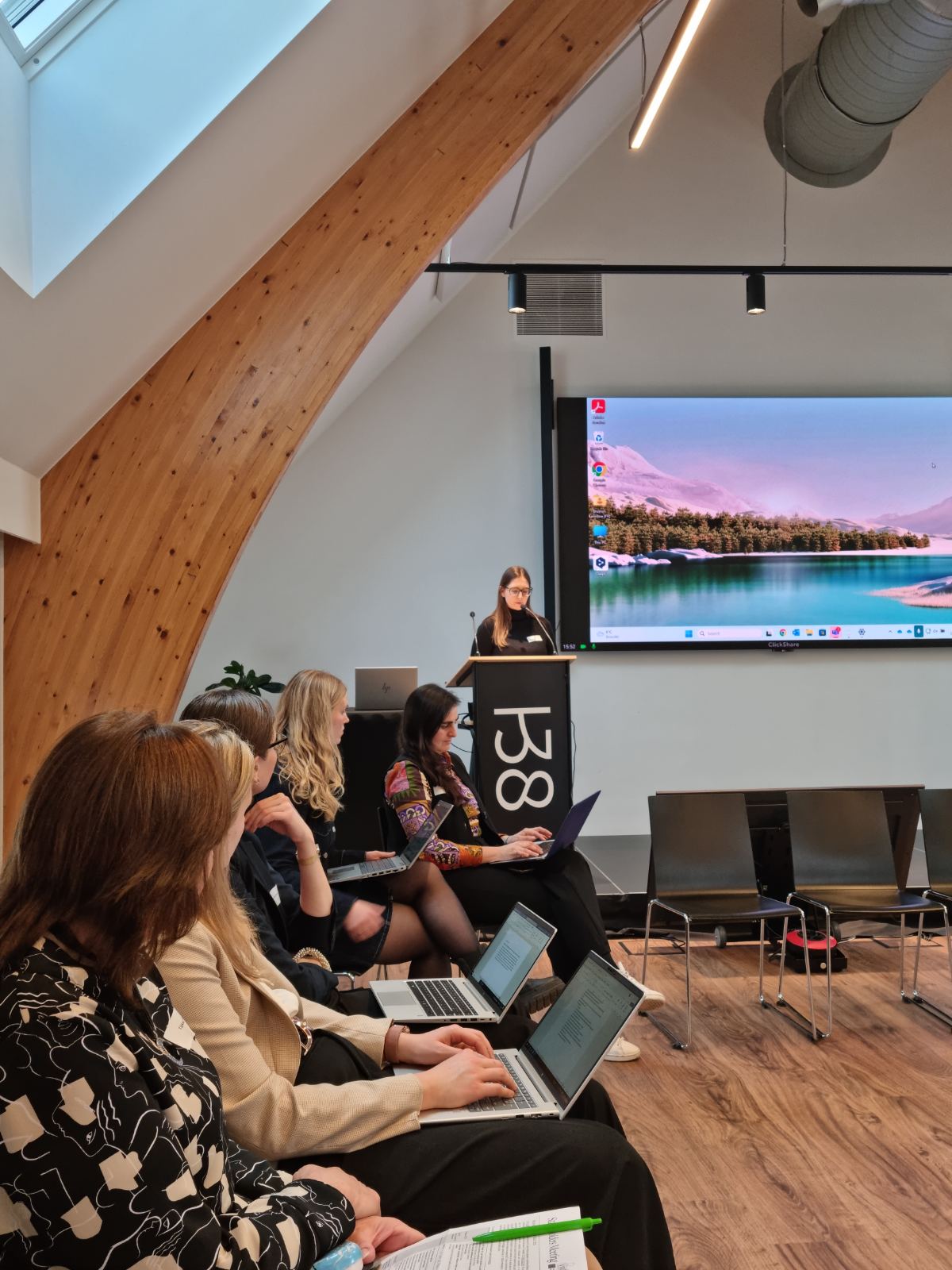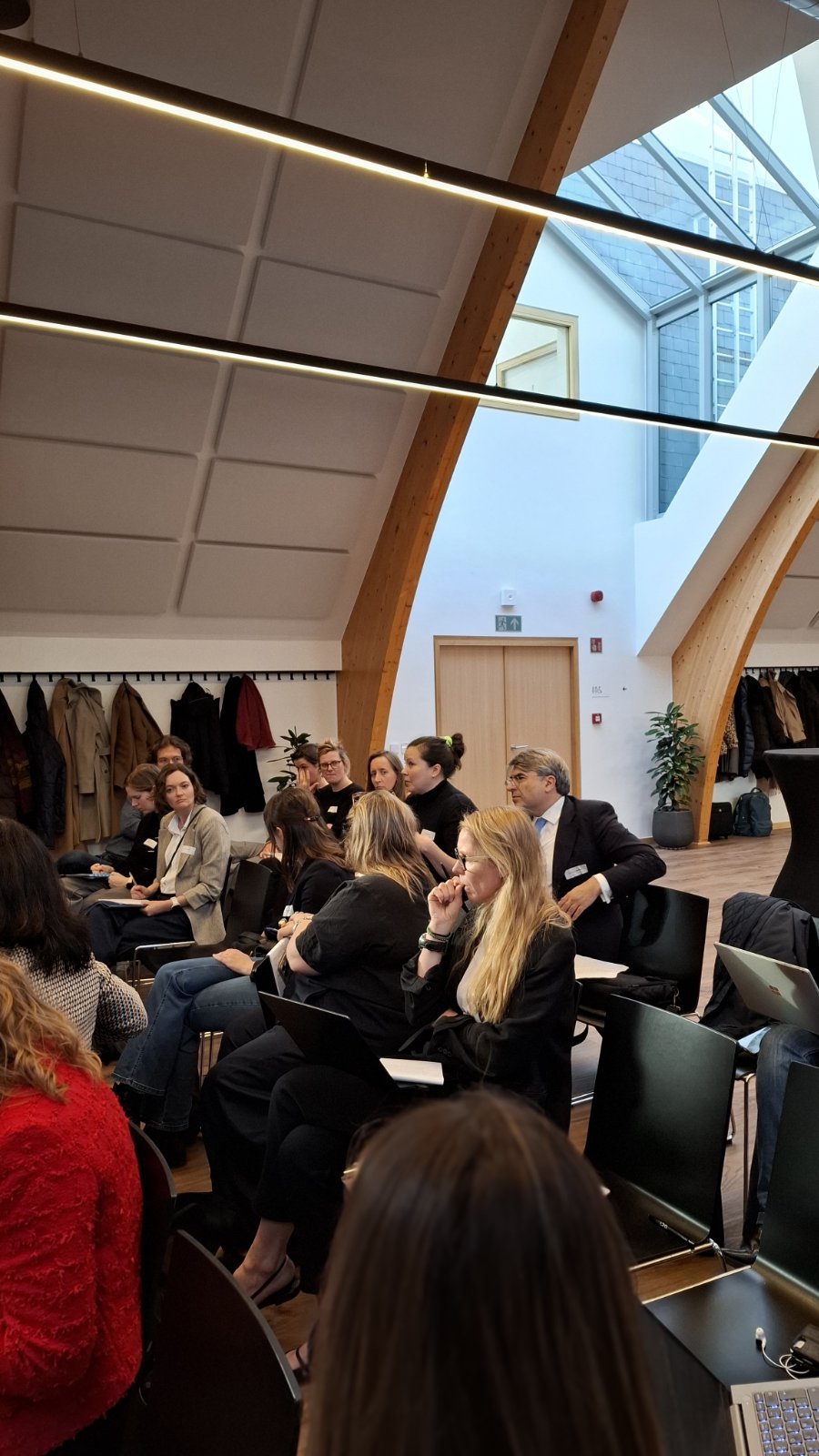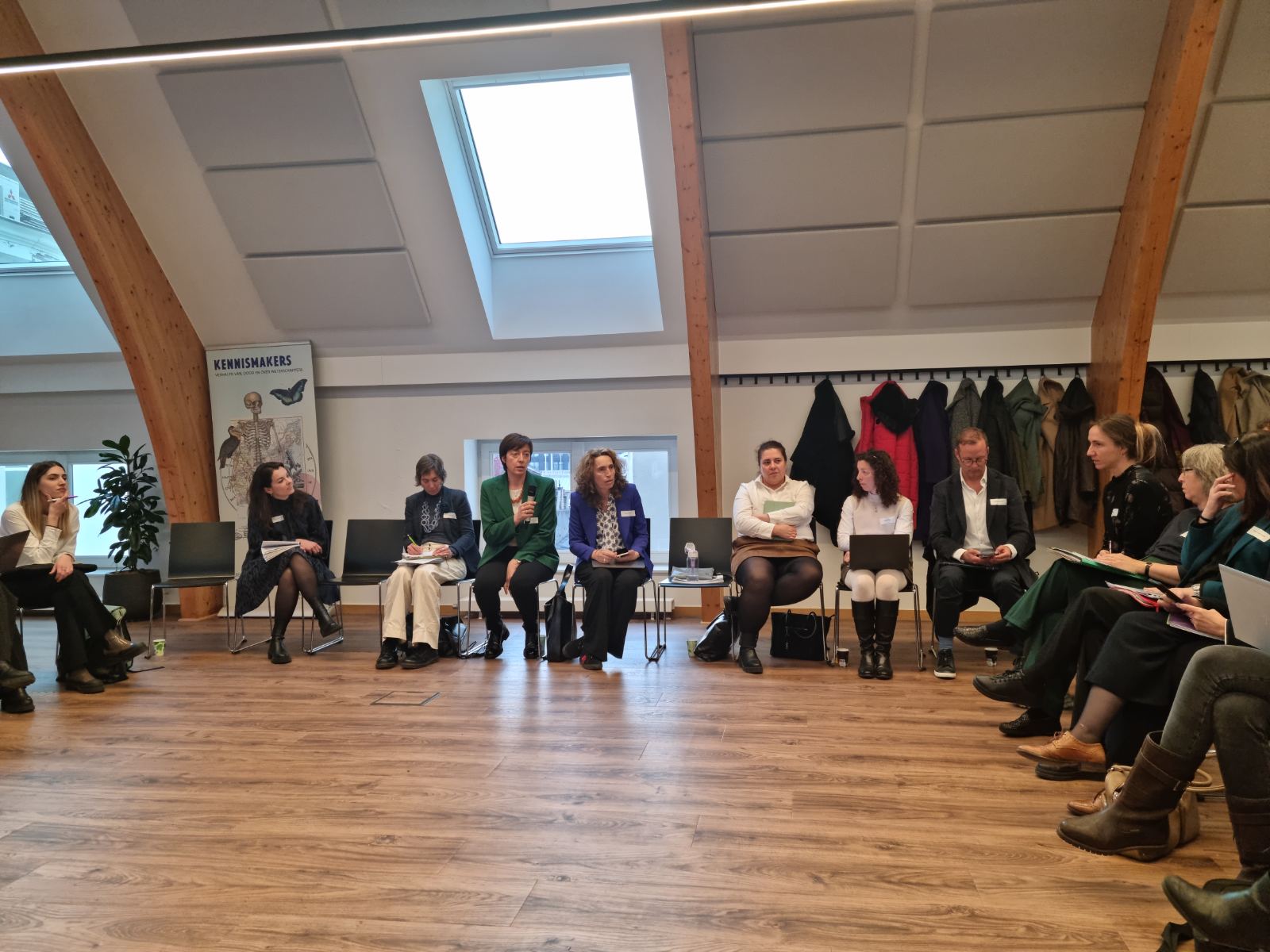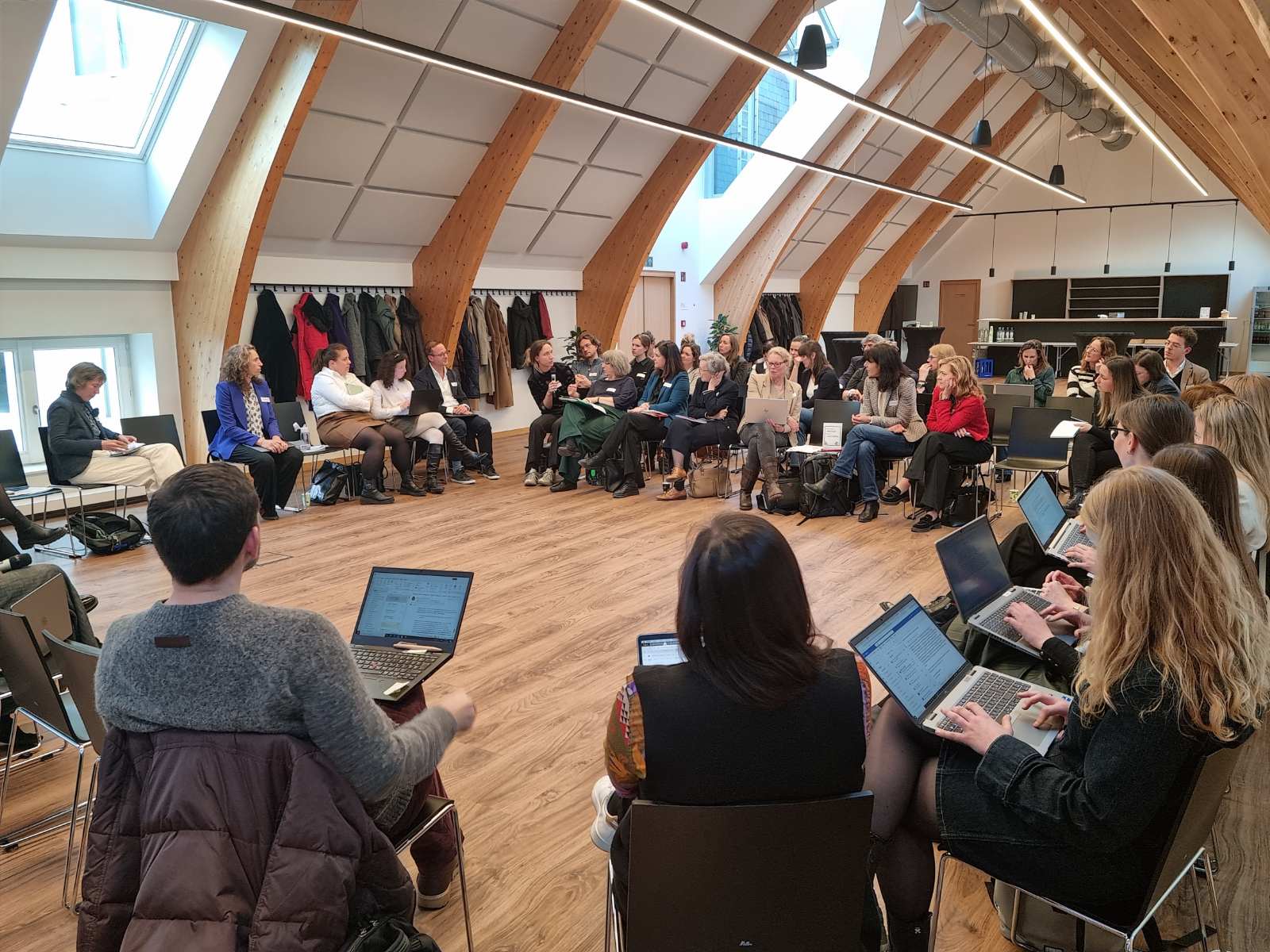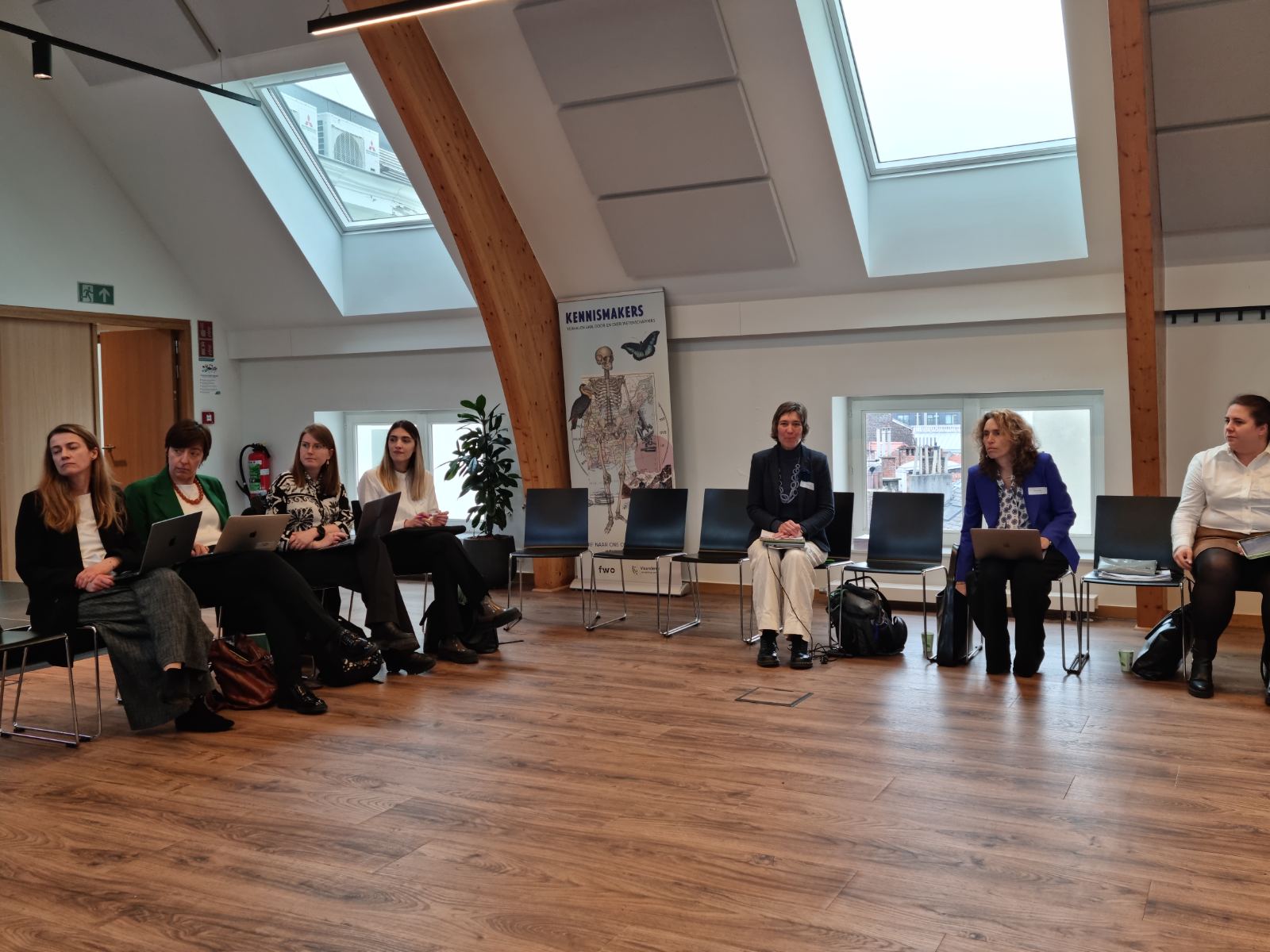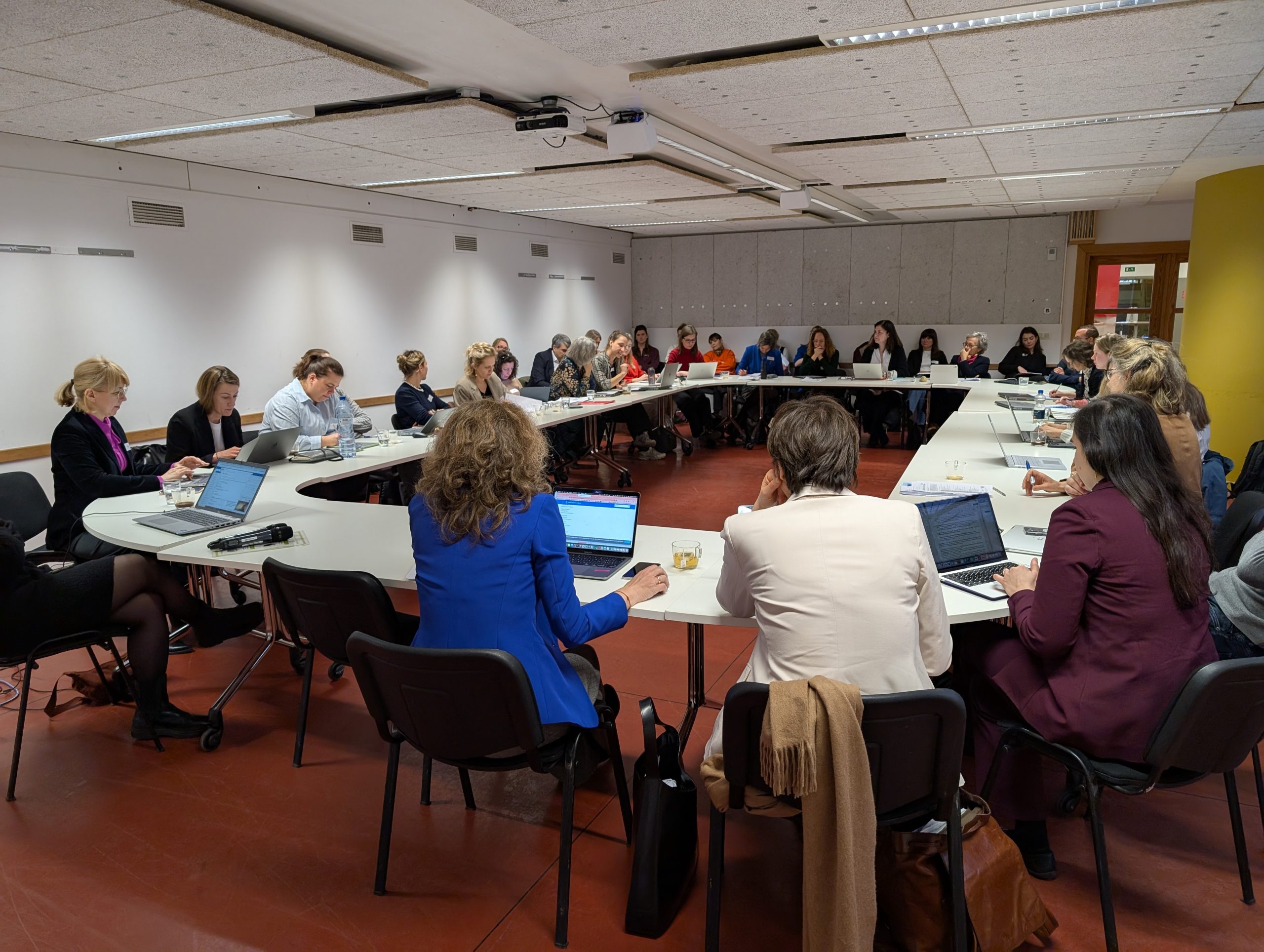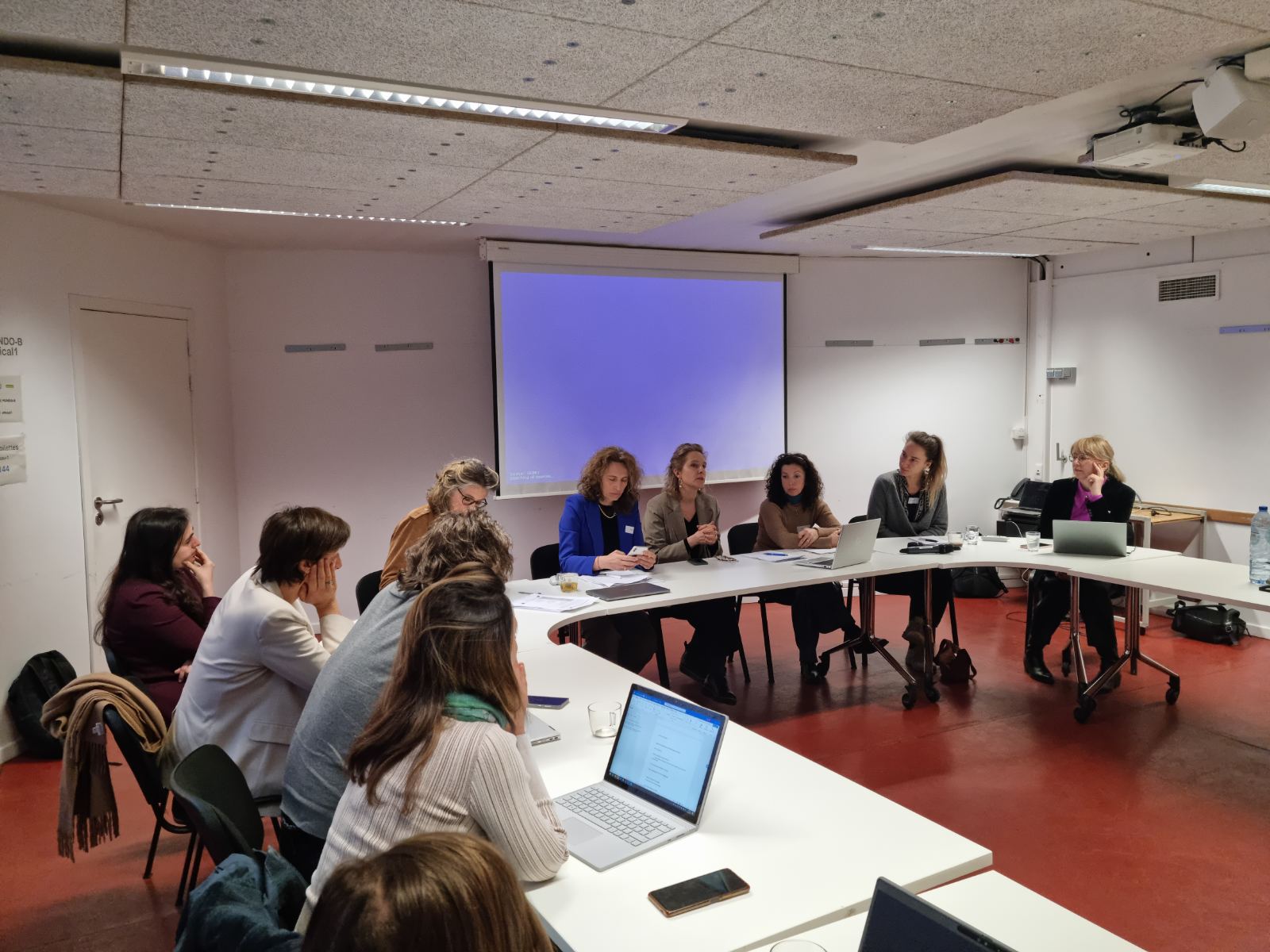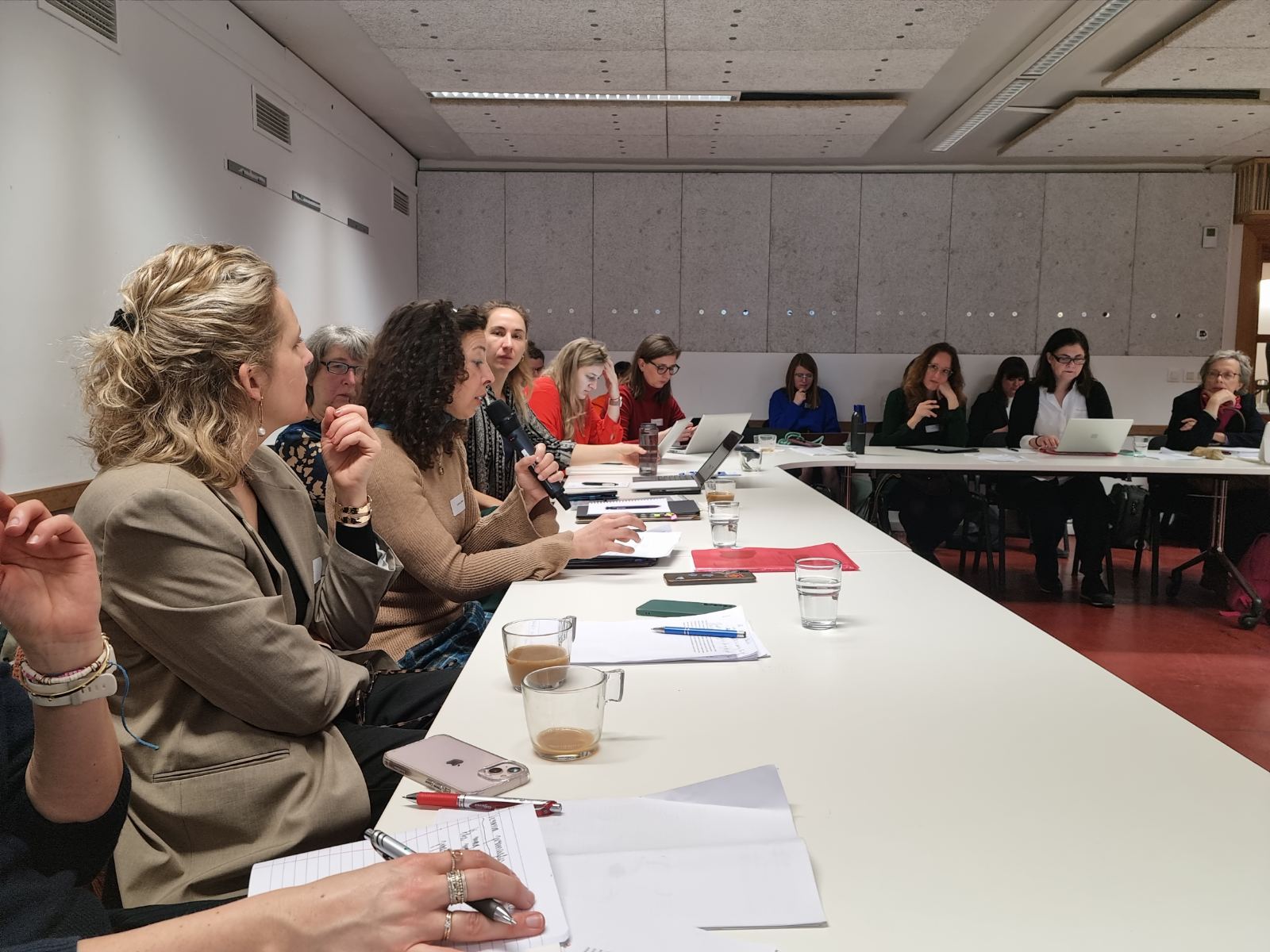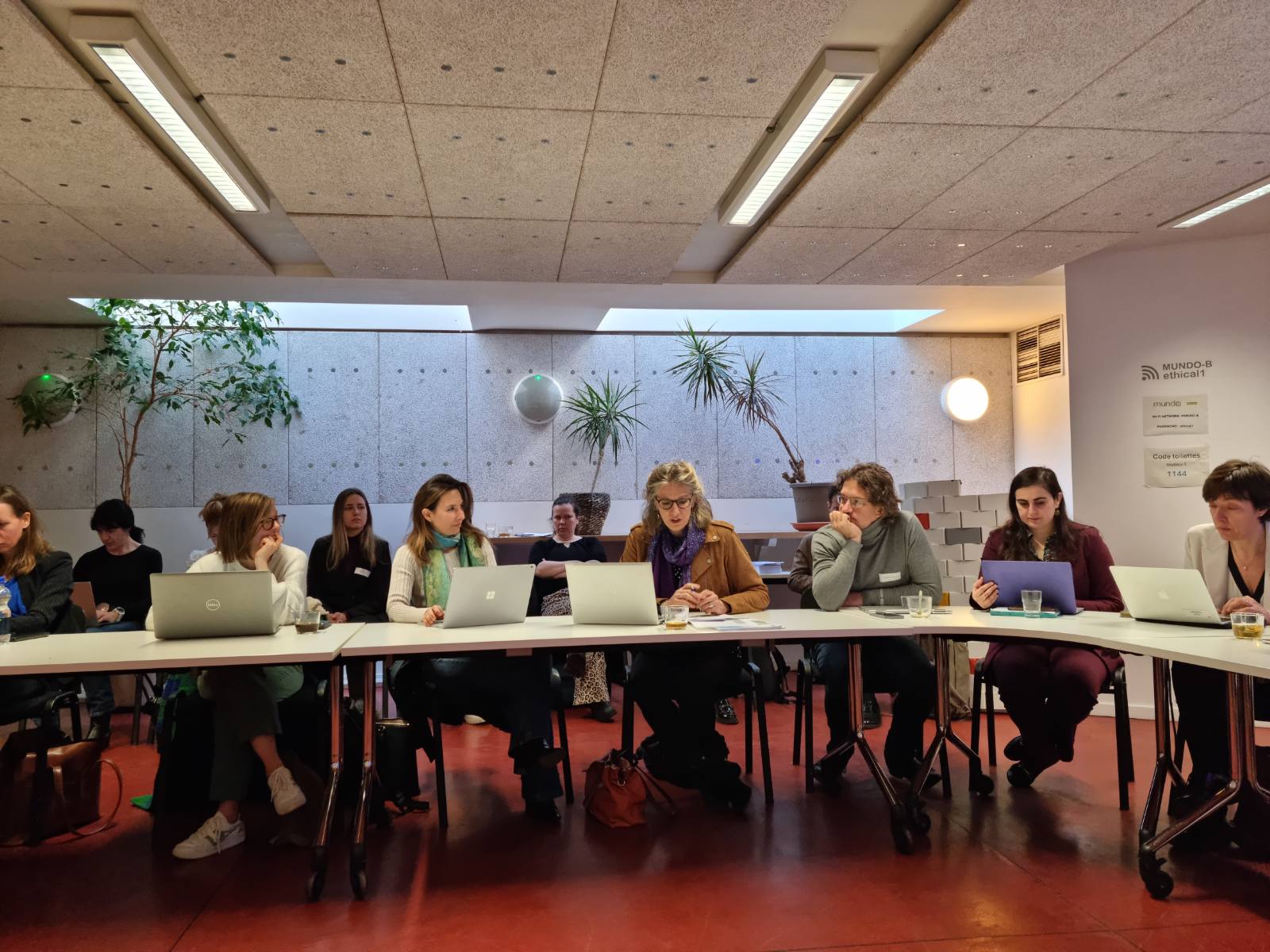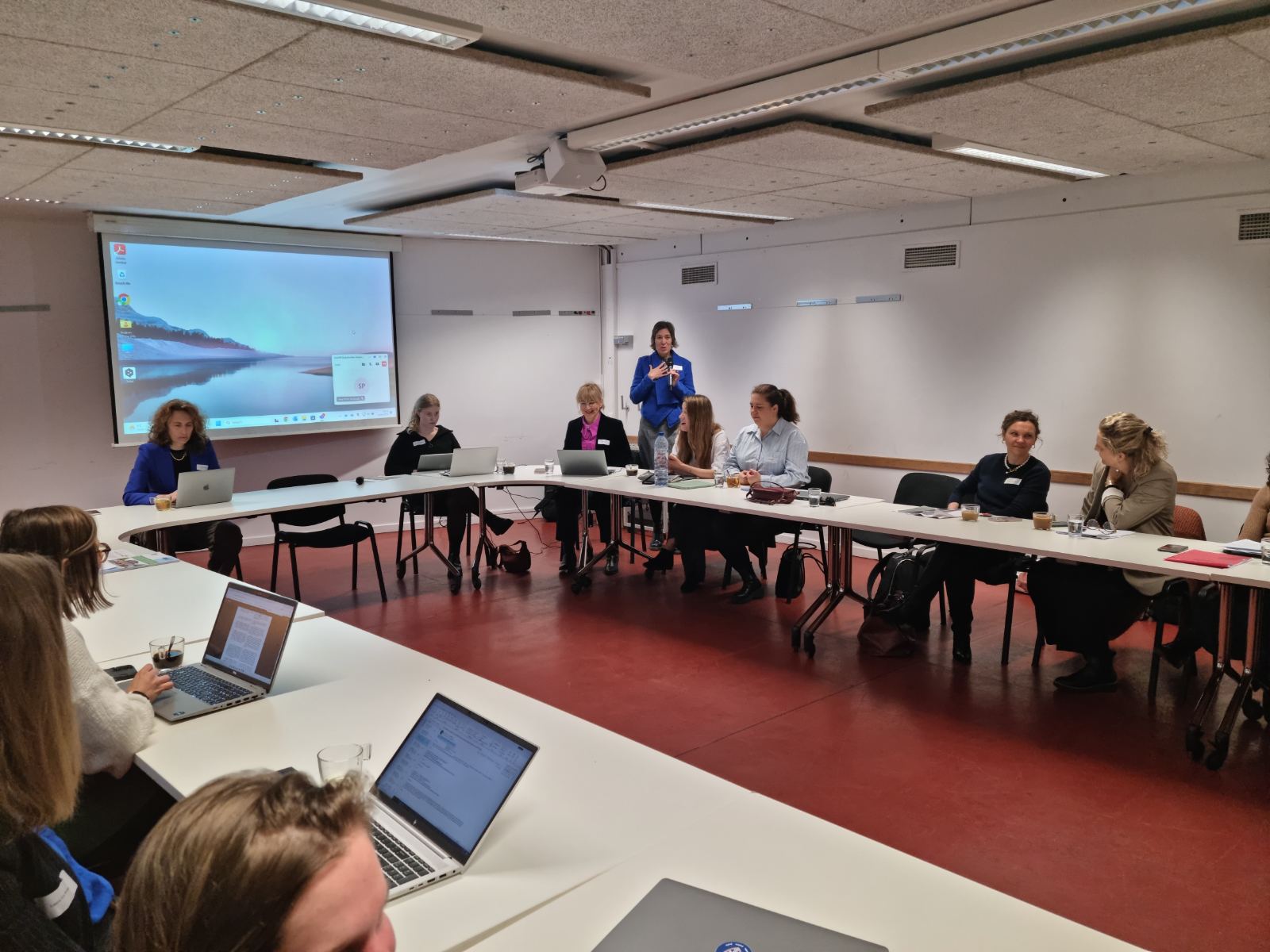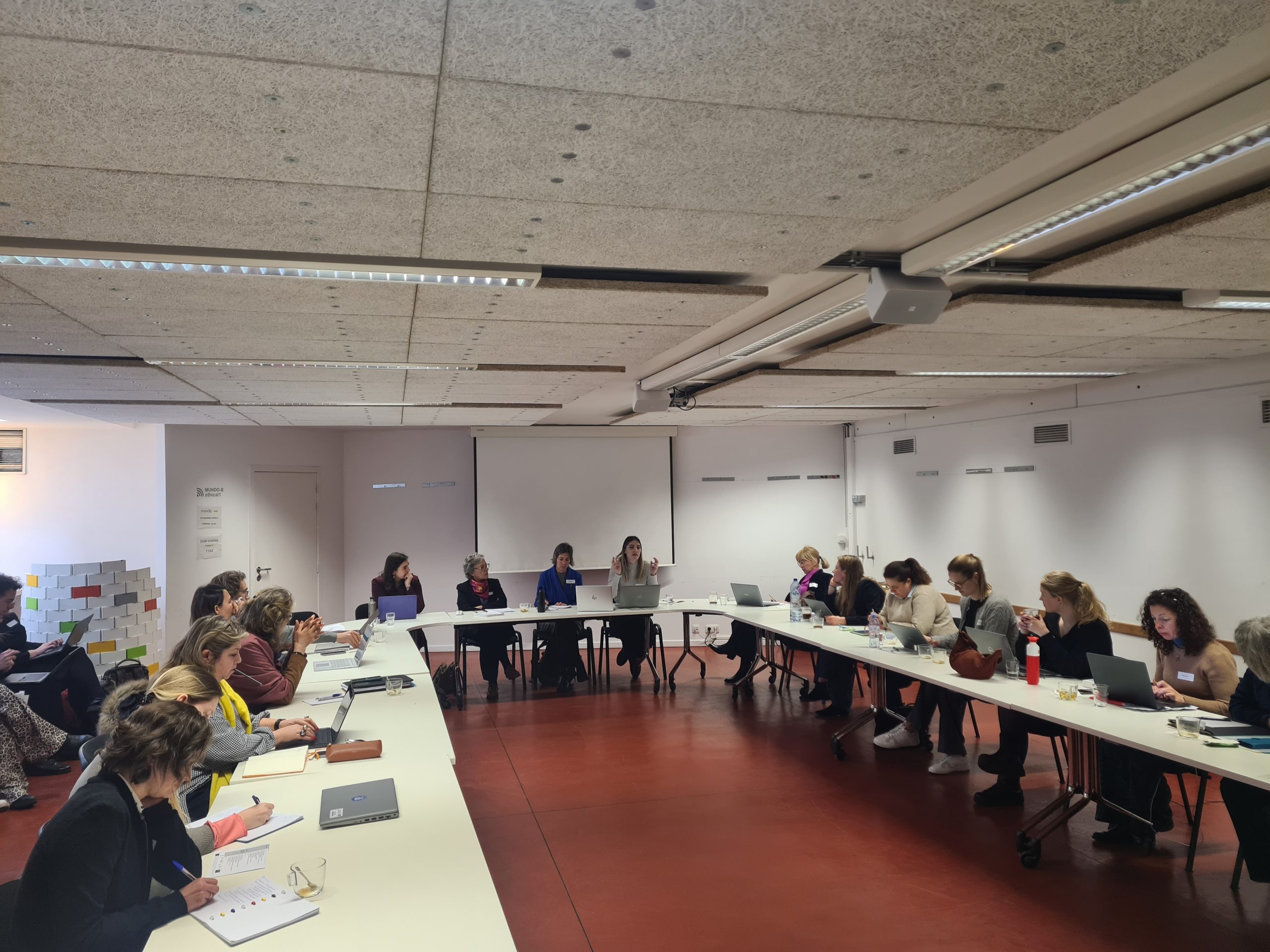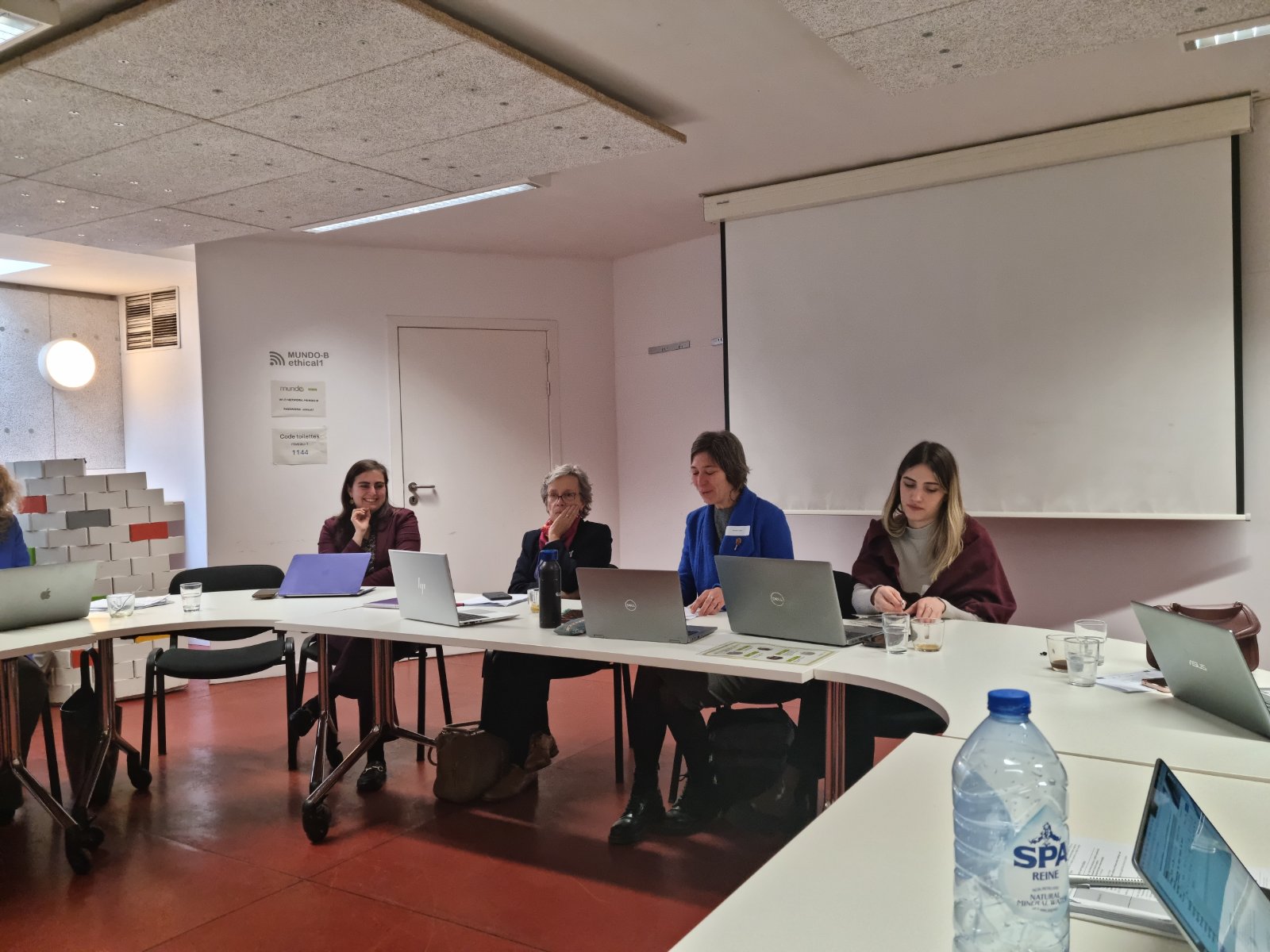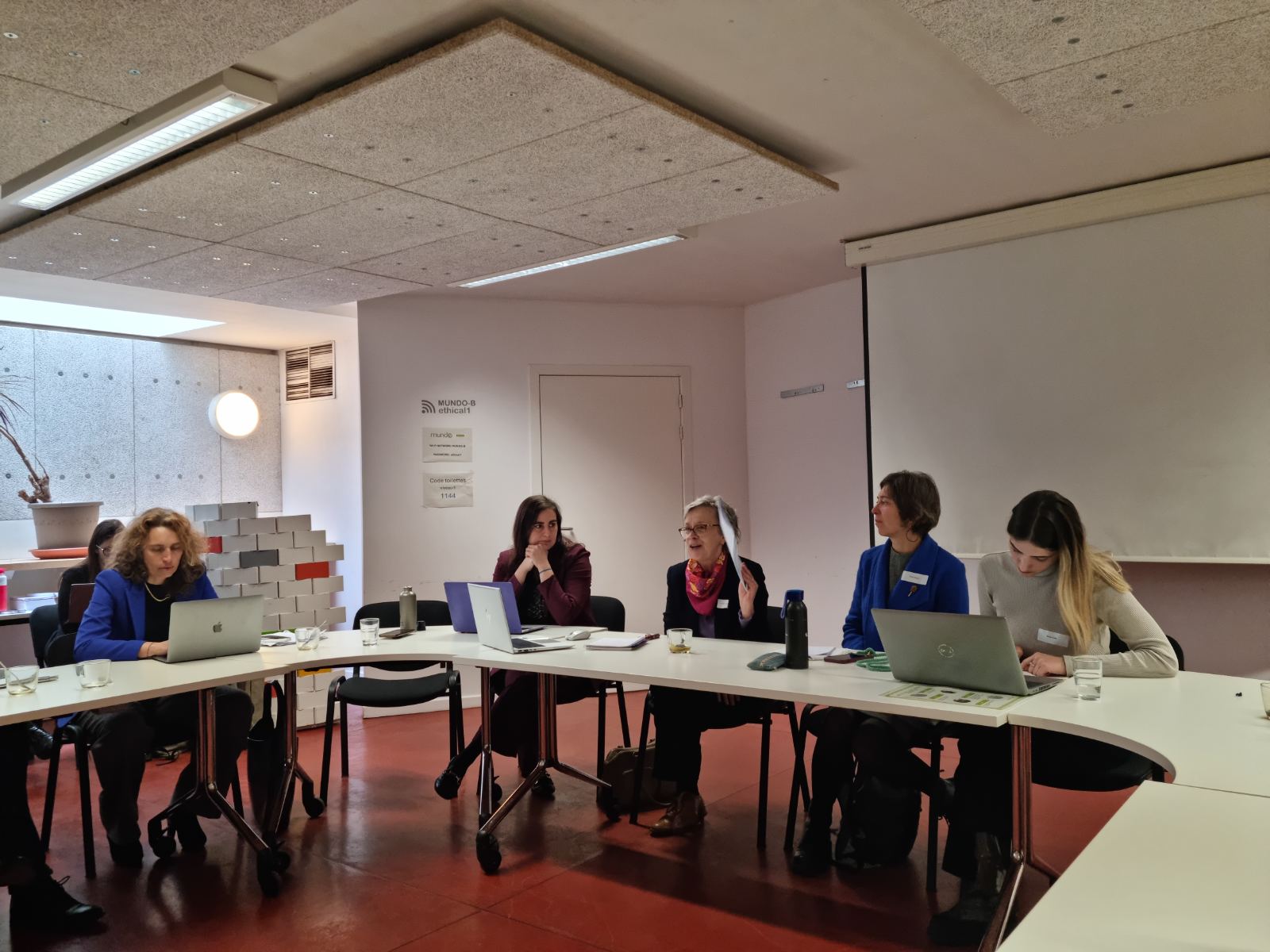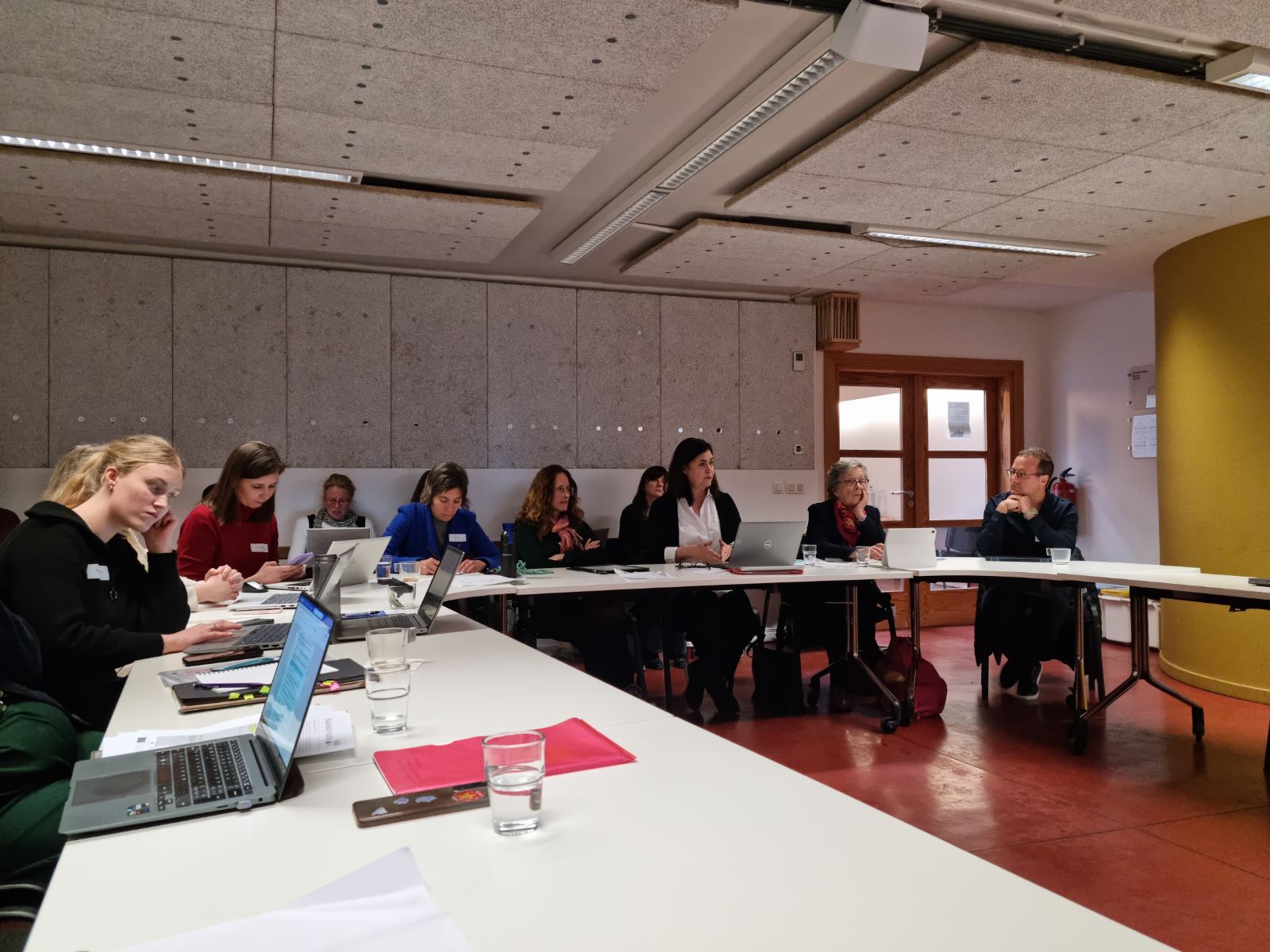Stakeholders Meeting
Brussels, 13 and 14 March 2025
The European Stakeholders’ meeting took place in Brussels on 13 and 14 March 2025. The main aim of the European Stakeholders’ Meeting was to have an interactive and international workshop to discuss the preliminary research results of the UniPAR project and also to discuss possible courses of action. The European Stakeholders’ Meeting was organised by the University of Antwerp.
Main scientific results
13 March 2025, afternoon: National Law
The first presentation was given by Tine Van Hof, a postdoctoral researcher at the University of Antwerp. She presented the Belgian legal framework on artificial reproduction and the donation of embryos and gametes. The donation of embryos is completely anonymous. In principle, the donation of gametes is also anonymous. Non-anonymous donation of gametes is only allowed with the consent of the donor and the intentional parent(s). Tine Van Hof also presented three main conclusions of the decision of the Belgian Constitutional Court of 26 September 2024 on the anonymity of gamete donors. Firstly, the Belgian Constitutional Court held that the right to respect for private and family life includes the right to know one’s filiation. Secondly, the current legislation absolutely deprives donor children of any possibility of finding out their filiation through the fertility centre, even if the donor himself would agree to the removal of anonymity. Thirdly, the legislature does not strike a fair balance between the interests at stake by giving absolute priority to the interests of the donor (the protection of anonymity) to the detriment of the interests of the conceived child (the right to know one’s filiation). The Belgian Constitutional Court ruled that the current legislation violated the Constitution, read together with Article 8 of the European Convention on Human Rights. As a result of the ruling, the Belgian legislature must amend the law by 30 June 2027 at the latest.
Laura Carpaneto, Associate Professor of European Union Law at the University of Genoa, discussed the Italian ban on surrogacy, which came into force in December 2024. According to the law, surrogacy is a universal crime. Surrogacy was already prohibited in Italy. With the new legislation, Italian citizens who go abroad to arrange a surrogacy can also be punished in Italy under Italian law. One argument for the ban is the protection of women's rights and to protect women from the commercialisation of surrogacy. Laura Carpaneto mentioned that there are no examples of (successful) prosecutions in Italy yet. It is unclear whether the Ministry of Justice will actually initiate prosecutions. In addition, the question can be raised whether criminalisation will work in practice.
Anna Wysocka-Bar, Assistant Professor at the Centre for Private International Law at the Jagiellonian University, and Ewa Kamarad, Assistant Professor at the Department of European Philosophy at the Jagiellonian University, provided some updates on the transcription of foreign birth certificates in Poland. Anna Wysocka-Bar discussed some of the challenges when parenthood is established abroad and transcription into the Polish registry is requested. Transcription of a foreign birth certificate is a preliminary step before it can be confirmed that the child has acquired Polish nationality by birth or that identity documents can be issued for a child born abroad. Transcription may be refused if it is contrary to public policy. The benchmark for deciding whether there is a violation of public policy is Polish substantive law, which clearly states that the mother is the person who gives birth to the child, and the other parent can only be male. Anna Wysocka-Bar explained that if there is no father, a fictitious name is mentioned on the birth certificate. A technical challenge is that there is only one box for mother and one box for father. Therefore, two mothers cannot be included in the transcription. Based on the case law of the Court of Justice of the European Union (CJEU), the Polish State is obliged to issue an identity card if the child has two mothers, but there is no obligation to register the child in the civil registry. This is difficult to implement in practice.
14 March 2025, morning: Children’s rights law
Carlotta Alloero, Legal Advisor at International Social Service (ISS) (head office), explained the Principles of the Rights of the child born through surrogacy (Verona Principles) of 2021. These principles were drafted by more than 100 experts from around the world. She said that subsequently the ISS received many messages, aggravated by the lack of legal frameworks.
Myriam de Hemptinne, a family judge of the Court of Appeal of Brussels, emphasised the importance of child-friendly justice. She discussed the child's right to information, to legal assistance, and to express their opinion. She expressed the need to inform a child about what happens during the proceedings, what happens with the information that the child shares with the judge and what the outcome of the proceedings is. Myriam de Hemptinne stressed the need for a professional and neutral guardian ad litem. She also raised the possibility of the child becoming a party to the proceedings.
Viola Rentzsch of the International Social Service (Germany) focused on the child's right to be heard. She mentioned that a child is heard in parental responsibility cases and one might wonder whether the reasons to hear children in those cases also apply to filiation cases. Children often want to be heard, but there may also be reasons not to hear children. For example, a child should not be heard just to tick the box that the child has been heard. A second reason for not hearing a child is that it may make the child feel uncomfortable. The psychosocial consequences of the hearing should be considered. A third reason is that it may delay the proceedings.
Caroline Vrijens, the Flemish Children’s Rights Commissioner, discussed surrogacy in Belgium. She mentioned that in the past they received many questions about intercountry adoptions, while now they receive questions about surrogacy. She highlighted that there are different interests involved in surrogacy. There are the rights of the surrogate, the rights of the intended parents and the rights of other children (e.g. children of the intended parents). It is difficult to determine the best interests of a child born through surrogacy. Nevertheless, she stressed that leaving children in a legal limbo is definitely not in their best interests, and that this threatens their rights and well-being. This is now the case in Belgium in relation to surrogacy (legal limbo).
Ilaria Pretelli of the Swiss Institute of Comparative Law discussed the child's right to identity, as enshrined in the Convention on the Rights of the Child. She also spoke about the role of filiation and adoption in the past and future. In the past, adoption was used to ensure the continuation of the lineage and to secure property rights. Using some examples, she asked what lessons could be learned from intercountry adoption. Another issue that Ilaria Pretelli discussed was the Council of Europe's Recommendation 2156 of 2019 on anonymous donation of sperm and oocyte. She stressed the need for legislation on the consent for the donation of sperm of oocytes.
14 March 2025, afternoon: European Union law
Helga Luku, a PhD-researcher at the University of Antwerp, outlined the case law of the CJEU on the right to free movement of EU-citizens. She discussed, inter alia, the Pancharevo (Case C-490/20; ECLI:EU:C:2021:1008) and Coman (C-673/16, ECLI:EU:C:2018:385) judgments of the CJEU. She pointed out that the Pancharevo judgment is legally sound in theory, but that it has created challenges in practice. For example, the child in the Pancharevo case still does not have a birth certificate. The Bulgarian Supreme Court disagreed with the reasoning of the Pancharevo judgment and held that under Bulgarian national law same-sex parenthood cannot be recognised and identity documents cannot be issued to the child. One point of discussion she raised was the implicit influence of judgments such as Coman and Pancharevo on national family law.
Francesca Maoli, lecturer in International Law at the University of Genoa, discussed the free movement of children within the EU. Children that are EU citizens need to be in a position where they are able to exercise their right to free movement. This means that there must be someone to take care of them. If their parents are third country nationals, they must have the ability to reside in the EU if this is necessary for the child to exercise their right to free movement. EU law does not attribute citizenship, as that is in the competence of the member States, but EU law obliges Member States to facilitate the exercise of citizen rights as much as possible. Private international law thus becomes relevant. The European Commission’s proposal on parenthood aims at full recognition of parenthood among EU Member States. Moreover, the Court of Justice of the EU might yet extend the guarantees that Member States have to grant to EU citizenship.
Cristina González Beilfuss, Full Professor of Private international at the University of Barcelona, presented the first findings of the UniPAR project, namely an impact report on parenthood. She discussed that the connection to parenthood can be found in many instruments regarding cooperation in civil matters, for example in relation to insolvency and non-contractual obligations. In many such cases parenthood can come up as a preliminary question. Another finding is that it is important to remember that parenthood is a status, a relation between a parent and a child, and that rights flow from parenthood. She gave some examples how questions regarding parenthood can arise in the context of determining jurisdiction and applicable law.

